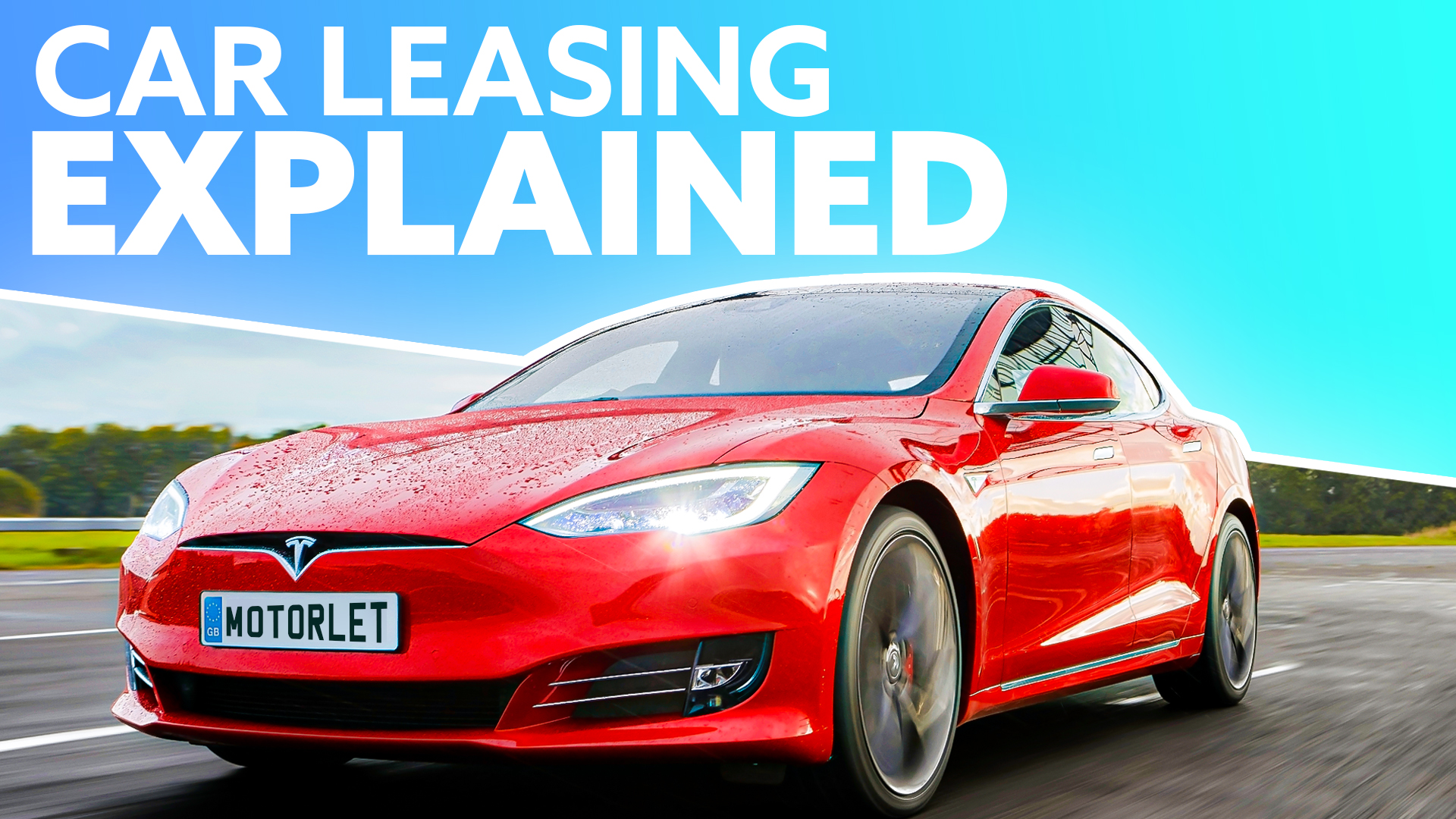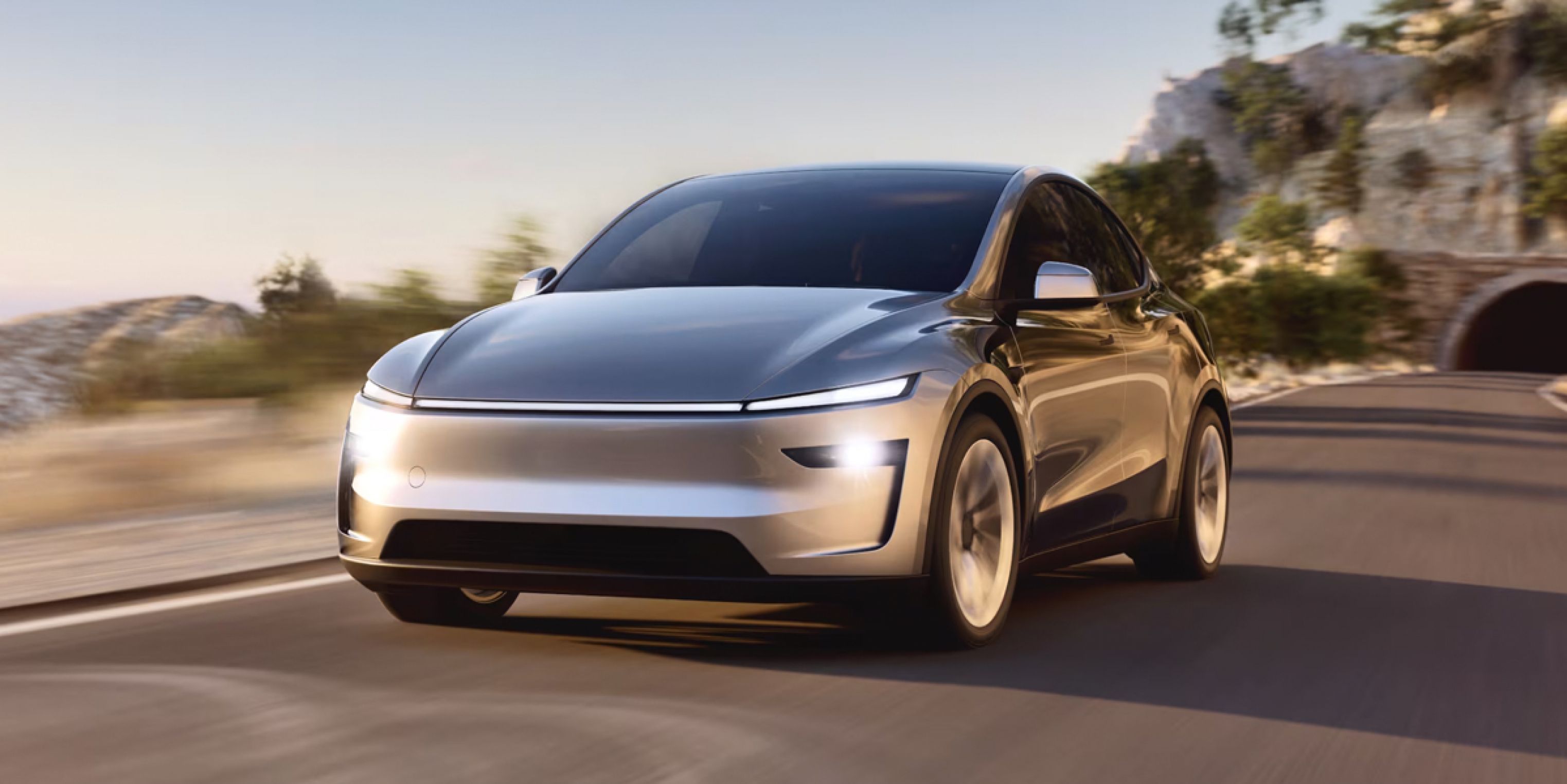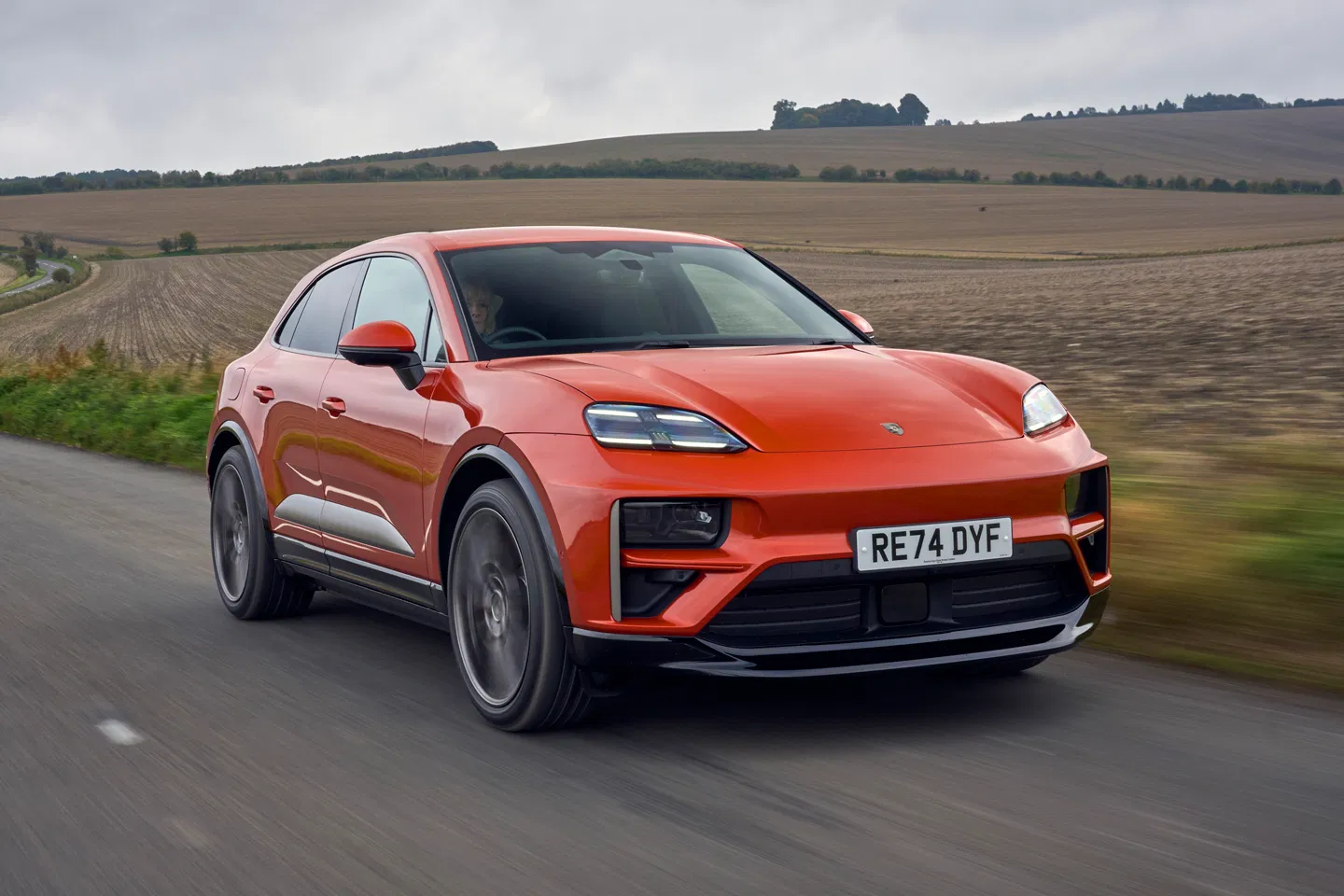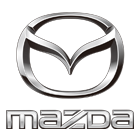The Ultimate Guide To Leasing A Car
13 full chapters that'll help you understanding leasing

Content
01
Car leasing can sound a bit strange and stressful, but we promise you it’s not.
This guide is to help you understand leasing and if it is right for you. We've broken it up into chapters so you can jump to what is relevant to you.
If you're completely new to leasing, it is worth starting from, well the start! Any questions, we're always on hand to help.
02
What is car leasing?
Car leasing, also known as Personal Contract Hire (or PCH for short) is essentially a long-term car rental.
You pay a fixed monthly cost for a car over an agreed term, based on a mileage allowance you decide, 10,000 miles per year for example (don't worry, you can increase this during your lease if you find yourself doing more).
Typically, all lease cars are brand new, which means you get a full warranty and breakdown cover directly with the manufacturer. The lease cost also includes road tax for the whole duration.
You can lease a car for as little as 6 months, all the way up to 5 years, and it is up to you how much you pay upfront (the more you pay upfront, the less you pay per month, and vice versa).
If you want to, you can also include an optional maintenance package which covers things like servicing and tyres. No insurance though, you have to sort that out yourself (more on that later).
At the end, you can simply hand the car back and start again (if you want) - or if you'd prefer, you can request to extend your lease, or even request to buy it.
03
How does car leasing work?
The Leasing Process
Choose Your Car: Select the make and model.
Set Terms: Decide on the lease duration, mileage allowance, and down payment.
Submit Application: Provide necessary documents and undergo a credit check.
Sign Agreement: Review and sign the lease contract.
Take Delivery of Your Car: Arrange for delivery or pick-up.
Choose your car
With hundreds of cars available, it is important to choose a car that suits both your wants and needs. This could be down to the right fuel type, number of seats, how many gizmos the car has, or it could be that you want the cheapest option or just need something very soon.
We're on hand to help with this, or you can use the filters on the search to narrow down lease deals.
Set lease terms
It is up to you to decide how long you want to lease for, how much you pay upfront, and your mileage allowance.
Typically, the longer you lease, the cheaper it is – this is because as the car gets older, it depreciates less, so you pay less to lease it. That said, you may find deals that work out cheaper over a shorter-term, so it is always worth comparing.
The upfront amount, which is referred to as the 'initial rental' is your first instalment, usually paid 10-14 days after delivery. It makes up part of your total lease cost, so the more you pay upfront, the less you pay per month, and vice versa.
When looking at lease offers online, you'll notice that most are advertised with an initial rental of 1, 3, 6, 9 or 12 months upfront. This means that the initial rental is the equivalent to that number of months. For example, if the monthly rental is £100 per month and the initial rental is 6 months, it would be £600. If you prefer though, you can just put down a round sum, like £1,000 for example.
As for mileage, the more you go for, the more your lease will cost. It is always best to be as accurate as possible, but don't overdo it, as with most leases, you can increase your mileage after the first 12 months if you haven't quite got enough.
Submit your application
When you're happy with your lease offer, it is time to submit your application for a credit check, which is qua ick online form.
You must meet certain requirements set by leasing companies, which include:
You must be at least 18 years of age
Hold a valid driving licence
Provide proof of address
Provide proof of ID
You will also need to demonstrate affordability by answering a few questions about your income and expenditure. In some cases, leasing companies may ask for documents to evidence this, such as bank statements or P60s.
In most cases, providing your credit is good and you're traceable at your address, we'll only require a copy of your driving licence.
Signing your lease agreement
If your application is approved, you'll be sent the lease agreement for signing.
Review all of the details and once you're satisfied, sign the agreement and return it to us.
Upon receipt of your signed lease agreement, it is a case of waiting until your vehicle is ready. If you've ordered a stock* car, this is usually pretty quick, whereas if you've ordered a pipeline* car or car from the factory*, the lead time can vary.
We'll update you on each stage of your car's journey so you'll know exactly when to expect it.
Stock car = a car that is here and ready
Pipeline car = a car that is built and on its way to the UK
Factory car = a car that is built to order, allowing you to customise it
Taking delivery of your new lease car
Once your vehicle is ready to be delivered, you'll need to prepare for it. This includes sorting out your fully comprehensive insurance and making sure funds are ready for your initial rental (which is taken via direct debit, usually 10-14 days after delivery).
When you're ready, simply provide the address you want it delivered to, along with who is signing for it if not yourself. Upon arrival, make sure you give it a thorough inspection to ensure it meets your expectations and is in perfect condition.
04
Benefits of car leasing
Now we know what car leasing is and how it works, let's go through the main benefits and advantages of car leasing.
Advantages of Leasing Over Buying
Lower Monthly Payments: Often cheaper than finance payments.
Pay less upfront: You choose how much or little you put down.
Brand-new Cars: Brand new means shiny and covered by warranty.
Road Tax Included: Covered for the duration of your lease (at prevailing rate).
No Depreciation Worries: If the vehicle drops in value, it is not your problem.
Warranty & Breakdown Cover: Included by the manufacturer.
Maintenance Packages: Decide to include in your lease.
Lower Monthly Payments
Leasing often means lower monthly costs compared to traditional finance, like PCP. Because you're essentially renting the car rather than paying for the whole thing, you only pay for the part of the car's life that you're using. Plus, there is no interest!
Pay less upfront
With leasing, you can choose how much you want to put down upfront. Whether it's a tiny amount or a huge chunk, you have the flexibility to decide. It’s great if you want to hang onto your cash for other things.
Brand-new Cars
Love the smell of a new car and all the latest tech? Leasing lets you drive brand-new models every few years. So, you’re always behind the wheel of something shiny and modern - a bit like renewing your mobile phone every few years.
No Depreciation Worries
Cars lose value over time – and it can be a lot. With leasing, you don’t have to stress about how much your car will be worth in a few years. You just hand it back and move on to your next one. The leasing company takes the hit on depreciation, not you.
Warranty & Breakdown Cover
Ever worried about your car breaking down and having a massive bill to put it right? When you lease, manufacturers include a minimum of 3 years warranty and at least 1 year breakdown cover. That means if something goes wrong, you're covered.
Maintenance Packages
You can choose to include a maintenance package with your lease. This means routine services and wear-and-tear items are taken care of (like tyres). This means you can just enjoy your car without fretting about maintenance costs.
In short, leasing can be a super convenient and cost-effective way to enjoy driving a new car without many of the usual hassles of owning an older car.

Book a call with one of our experts
We're on hand to help with any questions or queries that you've got.
05
Considerations of Leasing Over Buying
There are always considerations to any sort of finance, and leasing is no different.
No guaranteed option to buy the car: You can only request to buy it at the end of your lease
Excess mileage charges: Charges will apply if you go over your agreed mileage allowance.
No major modifications: As you don't own the car, you won't be able to make a lot of modifications to it.
Damage charges: These might apply if you have damaged the car beyond what is classed as fair wear and tear.
Early termination fees: Will apply if you want to come out of your lease early.
No hire or reward: You cannot use a lease car for delivery or taxi.
No guaranteed option to buy the car
When you lease a car, it's a bit like renting a house (except most cars lose value, whereas a house gains it) – you enjoy it while it’s yours, but you don’t get to keep it. At the end of your lease, buying the car isn’t a given. You will be able to ask to buy it, but there’s no guarantee the leasing company will say yes.
Excess mileage charges
Leases come with a set mileage allowance, and if you exceed it, you’ll have to pay excess mileage charges. Think of it as a data plan for your phone – go over your limit, and you pay more. But don't worry, they're usually only a few pence per mile and you can increase your mileage during your lease if you haven't quite got enough.
No major modifications
Small changes, like tinting your windows or dechroming your car are usually fine. But, since the car isn’t yours, you can’t make major changes to it. Again, like renting a house – you can’t knock down walls or redo the kitchen without permission.
Damage charges
If you return the lease car with more than just the usual wear and tear, you could be hit with damage charges. This can include things like scratches, dents, and chipped alloys, or it could be down to poor maintenance at an unapproved garage.
Early termination fees
Life can be unpredictable, and you might need to end your lease early. Unfortunately, doing so isn’t free. You’ll likely face early termination fees, which can be quite hefty. As a rule of thumb, you'll be charged 50% of the remaining rentals, although this does vary depending on the lease company.
No hire or reward
Planning to make some extra cash by delivering parcels or driving as a chauffeur? Leasing might not be the way to go. Most leases don’t allow you to use the car for hire or reward, meaning no Uber, Amazon, or driving instructors. It’s something to consider if you’re looking to use the car to bring in some extra income (or indeed if that is your main job).
In essence, while leasing has its perks, it also comes with a few strings attached. It’s important to weigh these factors against your lifestyle and driving habits to see if leasing or buying is the best fit for you.
06
Choosing the right lease deal
Know What You Want
The first step is to choose the type of car you want and how much you want to spend, that being upfront and per month. Without knowing your budget, you can get lost in a rabbit hole.
As for the car, you may only want a specific car, a Volkswagen Golf for example. But, if you're open to alternatives, then you want to narrow down what you need and what you want.
Need = deal breakers (min of 5 seats, auto, petrol, etc).
Want = nice to haves (sunroof, reverse camera, heated seats, etc).
By knowing this and your budget, you can compare deals on cars that tick all of your 'Needs List' and hopefully some (or all 🤞) of your 'Wants List', all within budget.
Comparing Options
So, now you're comparing different options, you need to compare specifics, like how long the warranty is on each vehicle and how many years of breakdown cover you get – this can all vary depending on the manufacturer (just ask us if you're unsure).
You might also want to compare different terms on a couple of cars. For example, although uncommon, it could be cheaper to take a lease over 24 months than it is over 36 or 48 months, so it's always worth checking.
Same goes for the mileage. It can sometimes work out cheaper to take a lower mileage and pay the excess mileage charge at the end – again, pretty uncommon, but worth checking.
A strong benefit of a broker (like us) is that they know all of this already.
Evaluating Offers
When you've got a few options to look at, it's time to get down to the nitty-gritty. There are a few key factors to keep in mind. First, the obvious, look at the monthly payments – are they within your budget after insurance, fuel, etc?
Next, consider the initial deposit; some deals might require a bigger upfront payment, while others might require higher administration/set-up fees. The best thing to do is add it all up and compare the total costs.
Don't forget to check the mileage allowance and excess mileage charges. An offer may have a much lower total cost but have an excess mileage charge of triple – if you're likely to go over your mileage, this could end up costing you more in the long run.
Finally, see what services are included. 99% of deals include free delivery, road tax, some sort of breakdown and warranty, but some deals come with extras, like free servicing or a free EV charger (if you're looking at an electric car, of course...).
In a nutshell, finding the right lease deal is all about comparing options and evaluating what’s included, so you can drive away happy and worry-free.
We've got a whole guide on how to get the best deal here: Get the Best Personal Lease Offer - Top tips to make sure you get the best lease deal.
07
Understanding lease agreements
Whilst the principles of a lease agreement are the same across a lot of leasing companies, you'll need to review your lease agreement to ensure it is suitable.
Common Terms and Conditions of a Lease Agreement
Early termination fees
As we mentioned earlier, there are early termination fees if you want to come out of your lease before the end date. Usually, the fee is 50% of the remaining rentals, but this does depend on the leasing company.
Maintenance responsibilities
If you've decided not to include a maintenance package, it is your job to maintain your lease car whilst you've got it. Some leasing companies require you to only use franchised dealers for this, which are typically more expensive, whereas others are happy for you to use VAT-registered garages that use genuine parts.
So, if you've got a local independent garage you'd like to use, it is worth checking if you're able to. Of course, if you decide to include a maintenance package, simply call the 24/7 driver line and we'll book it for you.
Taking your lease car abroad
Good news, you can take your lease car abroad, with the expectation of a few countries (anywhere in Europe with most leasing companies) – you just need to let your leasing company know. If you want to make sure you can take it to a specific country, just get in touch.
Usage restrictions
There are certain restrictions when it comes to the use of your lease car, for example, when it comes to your typical lease offers, you cannot be a taxi driver/chauffeur, delivery driver, driving instructor, etc. If you are, you can still lease, you just need to make a bespoke enquiry.
Private registrations
You can put your private registration on your lease car, either before delivery or after. If you do it before, you will need to pay an admin fee to the DVLA only. If you do it after, there will be an additional admin fee to pay to the lease company.
Fines and charges
Different leasing companies have varying charges for processing fines such as speeding tickets or parking violations. For example, some companies may charge a £25 administration fee to process these fines, whereas others may charge more.
In summary, there isn't much you can't do with your lease car. For most of us, you simply use it like you would any other car.
08
Wear & tear
Managing Wear and Tear
Leased vehicles must be returned in good, but reasonable, condition, adhering to the wear and tear guidelines specified in your lease agreement. Normal wear and tear includes minor scratches, chips, and wear on tires, but excessive damage such as dents, deep scratches, or interior stains can incur additional charges.
That said, it isn't always worth getting some damage repaired yourself. A lot of the charges for damage are reasonable and not far from what it'll cost you anyway. You can send us pictures of any damage you're worried about and we can recommend if you should get it repaired or just leave it.
Leasing companies need to adhere to the BVRLA fair wear and tear guidelines too, so you can refer to this if you're unsure. The BVRLA will also help if you feel your charges are unfair.
In summary, damage charges are not as bad as one might think. We hear the occasional horror story, when someone you know, knew someone else, whose uncle had a huge bill. In reality, out of the tens of thousands of vehicles we have leased, we've had very few cases where a customer has been charged a huge bill that was unfair.
09
Lease-end options
When it comes to the end of your lease, you have a few options. These options depend on the leasing company, but most of them will allow these options.
Renew for new
The most common among our customers is to get a new lease car. You've had your current one for a few years, so there is a good chance you're ready for a change. We get in touch around 12 months before your lease is due to end, just to get your feedback and see if anything has changed. We'll then start putting some deals together for you.
Starting this process 12 months before allows us to ensure your new car arrives in time and means we have more time to secure you a great deal.
Extend your lease
The next most popular option is to extend your lease. This can be done informally or formally.
Informally means you keep your lease rolling month by month, usually paying the same amount. This is good if you need a couple of extra months before handing the car back.
A formal extension is usually for a minimum of 6 to 12 months. You'll be given a new price for that period, which could be less, more, or the same as what you've been paying. This is a good option if you've not quite found a new lease that ticks every box.
Request to buy
If you love your lease car, you can request to buy it, usually within the last 3 months of your lease. Speak to your leasing company and if they are happy to sell it to you, they'll give you a price.
Hand it back and walk away
The last option is to simply hand it back and be on your way. Leasing won't be for everyone, but that is the beauty of it – try it for a few years and see how you get on.
10
Using a leasing broker
A car leasing broker acts as a middleman between customers, leasing companies, and dealerships. They source vehicles from various suppliers, often at a discount, and offer competitive prices using multiple leasing companies to get the best deal. Brokers also provide guidance and support throughout the leasing process, ensuring a smooth and enjoyable experience.
Benefits of Using a Leasing Broker
Dealership Network & Supply
Brokers partner with hundreds of dealers across the UK. This extensive network allows them to access a larger stock of vehicles and find the best deals on your desired car. For example, if an Audi dealer in Glasgow has a special offer on an Audi A3 but you live in London, a broker can secure this deal for you, including free delivery.
Brokers develop strong relationships with dealerships, leading to better discounts. By handling bulk orders, brokers secure prices individuals typically cannot. This also means better access to stock vehicles, so if you need a specific car quickly, a broker can help.
Leasing Companies
Leasing brokers work with several leasing companies, similar to how mortgage brokers provide multiple mortgage quotes. This means they can offer various quotes, often finding cheaper options than what a single dealership provides.
Brokers have access to special deals negotiated directly with manufacturers and different leasing companies have varying benefits and disadvantages, so a broker can help you choose the best overall deal, considering factors like excess mileage charges.
One-off Lease Deals
Leasing brokers help dealerships and leasing companies shift old stock, pre-registered cars, or cancelled orders. These vehicles are often heavily discounted for quick sales. Brokers can inform you about these deals before they hit the market, ensuring you don't miss out.
Cancelled orders often mean immediate availability of high-demand cars, and brokers typically have a list of clients ready for these opportunities. Pre-registered deals are also common, where vehicles registered to hit targets are sold at a discount. These cars are brand new but might have a previous registration plate.
All in One Place
A key benefit of using a broker is convenience. They provide multiple lease quotes from various dealerships and leasing companies, saving you time and effort. Brokers can recommend alternatives and offer unbiased information, as they are not tied to any brand, ensuring you get the best deal for your needs.
Conclusion
Using a car leasing broker can save you time, money, and hassle. They offer access to a wide range of vehicles and deals, provide multiple quotes, and offer personalised support throughout the leasing process.
11
Common pitfalls with leasing
We often see the same pitfalls with our customer when it comes to their first lease.
Here are the common pitfalls.
Trying to lease a car for someone else
The only time you can lease a car on behalf of someone else is when that someone is your child (aged between 18-21) living at home or your spouse, and even then it will depend on the lease company. Get in touch if you want to lease a car for your child or spouse.
Underestimating Mileage Needs
Exceeding your mileage allowance can lead to expensive excess mileage charges. Accurately estimate your annual mileage to avoid unexpected costs. Don't go for a really low mileage just to keep a car in budget.
Ignoring Wear and Tear Policies
Not maintaining the vehicle can result in charges for excessive wear and tear. Regular maintenance is crucial to avoid these penalties at the end. Always consider including a maintenance package.
Overlooking the Fine Print
Not reading the lease agreement thoroughly can lead to misunderstandings about your obligations and potential fees. Always review the contract details and ask us if you're unsure of anything.
Early Termination Fees
Ending your lease early can be costly, so always try and go for a lease term that you'll be happy with. Be aware of the terms and penalties associated with early termination.
Inadequate Insurance Coverage
Ensure you have comprehensive insurance coverage that meets the leasing company's requirements to avoid any issues. Again, we're on hand if you unsure about anything.
Avoiding these pitfalls can help ensure a smooth and cost-effective leasing experience.
12
Final leasing tips
Tips for First-time Leasers
Research Thoroughly
Gather information on different leasing options, vehicle models, and lease terms. Understand the pros and cons of each to make an informed decision.
Compare Multiple Offers
Try and be open to alternative cars – you might want an Audi A3, but there could be a much better deal on a BMW 1 Series. Don't settle for the first offer; explore various options to ensure you're getting the most value.
Read the Lease Agreement Carefully
Ensure you understand all terms, including mileage limits, maintenance responsibilities, and end-of-lease conditions. Pay attention to the fine print to avoid unexpected charges.
Final Considerations Before Signing a Lease
Align Lease Terms with Your Driving Habits and Budget
Choose a lease term and mileage allowance that fits your lifestyle. Ensure the monthly payments and upfront costs are within your budget.
Verify Included Services and Potential Additional Costs
Check what's included in your lease, such as maintenance and delivery. Be aware of potential extra costs like excess mileage charges, wear and tear fees, and early termination penalties.
By following these tips and recommendations, you can ensure a smooth and satisfactory leasing experience.
13
Compared to other methods
Leasing, PCP, or HP?
Over 90% of cars are financed in some way and which way you choose depends on your preferences. PCP is the most common, leasing is the fastest growing, and HP is becoming a lot less popular.
Personal Contract Purchase (PCP) is a type of car finance where you make an initial deposit followed by monthly payments over a set term. At the end of the term, you have three options: return the car, make a final "balloon" payment to own it, or trade it in for a new PCP deal (providing it is worth more than the balloon).
Hire Purchase (HP) also involves paying an initial deposit, followed by monthly payments over an agreed period. However, unlike PCP, these payments cover the entire value of the car. Once all payments are made, you own the car.
Summary
In summary, leasing is ideal for those who prefer to use a car without ownership commitments and usually comes with a lower monthly cost. PCP offers flexibility with an option to own the car, but often costs more than a lease, and HP is suited for those who want to own the car outright after a series of fixed payments.
Here are a few questions we get asked a lot about car leasing
What is included with car leasing?
As standard with all our car leases, free UK mainland delivery, road tax for the entire lease period, an official manufacturer’s warranty for three years minimum, and breakdown cover for your first year.
What are the upfront costs for car leasing?
Once you’ve chosen one of our lease vehicles, you’ll decide on the amount you want to pay upfront. This is known as the initial rental fee. This initial payment will be deducted from your overall lease balance. The more you pay upfront, the less you have to pay monthly. There’s no set amount for this – it’s entirely up to you.
How long will it take to get my lease car?
This is entirely dependent on the lease vehicle you decide to go for. Some vehicles need to be ordered from the factory whereas others might already be on their way to the UK. Or, you could go for a vehicle that’s already in stock – these can take between a couple of days and a couple of weeks. You can get in touch with our team to find out more about delivery times.
Do I need to pay for servicing, tyres, and other maintenance?
You will need to upkeep your lease car and ensure that services, tyres, and general maintenance are taken care of. It might help to add a maintenance pack to your lease contract, so you don’t need to cover these fees yourself. A maintenance pack will add a small, extra fee to your monthly payments but will ensure all of the maintenance costs are taken care of.
Are my monthly lease car payments subject to change?
From start to finish, your monthly payments on your lease car will be fixed. There’ll be no surprise changes in price, and you’ll never have to pay any more than what’s on your contract.
Do I have to pay interest on my monthly lease car payments?
As a lease is classed as hire, not finance, there is no APR with a lease. Of course, there will be a cost of borrowing, but that is built into your lease cost.
Can I lease a car for somebody else?
If you’re feeling really generous, you can lease a car for your spouse or a partner living at the same address. You can also lease a car for a child, of 21-years-old and under, living at the same address. Sadly, you can’t lease a car for a friend or somebody who has previously been declined.
Will I need to MOT my lease car?
Not for three years – as long as the car is brand-new. Shiny new cars don’t require an MOT for three years after purchase. You’ll also receive a full manufacturer warranty to cover any issues in the meantime.
What happens when my car is ready to be delivered?
We’ll contact you to arrange a delivery date, which will be free, to any UK mainland address, and we’re also able to have somebody else sign for the car if you grant us permission. Your car will go through a pre-delivery inspection before it’s delivered to you, but you’ll need to give it a look over before you sign for it.
What happens if my vehicle is delivered with damage?
If you do spot anything that you’re not happy with you’ll need to let us and the delivery driver know. We’ll then get in touch with the dealership and aim to solve the issue as quickly as possible.
How is my lease deal calculated?
Your lease quote is based on the lease car you've chosen, the lease term and your mileage limit. You can then choose to add extras, like a maintenance plan or a few upgrades to the car.
How can I get the cheapest car lease deals?
We always have special offers on our site, so you can visit back regularly to see what discounts we have available. Our discounted lease cars are often shockingly good, so they shoot out the door super quick.
What's next?
Enjoyed this? Read our latest news

EV Myths Debunked
In this guide, we debunk the biggest EV myths so you can get the real facts and decide if an electric car is right for you!

Should You Lease or Buy an Electric Car?
This comprehensive guide breaks down the financial implications of both options, helping you understand which approach makes the most sense for your situation.
Are Electric Cars Cheaper to Lease?
Considering an electric vehicle but unsure about leasing versus buying? Our Electric Leasing Guides break down everything you need to know about EV financing options.
Customer Stories
We've helped over 1,000+ customers find their dream car, hear what they have to say.
Read more reviews“As usual, top class service. The team at Motorlet provided first class service from beginning to end with the friendly helpful expertise of Josh and Wendy. Will continue to use their services as I have done for the past six years...” Keep reading
Diane Parish | Audi Q5

New deals weekly
Subscribe to get the latest offers, guides, new, and more, straight to your inbox.


















